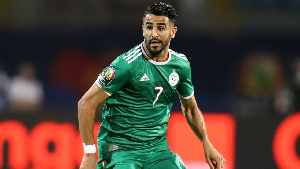New data from the World Health Organisation (WHO), yesterday, showed that weekly COVID-19 deaths in Africa reached a record peak in the week that ended on August 1, marking the highest seven-day toll since the onset of the pandemic in the continent.
The data released during a virtual press conference facilitated by APO Group, showed over 6,400 deaths were recorded, a two per cent rise compared with the previous week, with South Africa and Tunisia accounting for over 55 per cent of the fatalities.
Death trends are on the rise in 15 countries, and 12 have reported higher case fatality rates than the African average of 2.5 per cent over the last month.
With more than 172,000 deaths, Africa accounts for over four per cent of the 4.2 million COVID-19-related deaths recorded globally to date.
New Vaccines Introduction Officer at WHO Regional Office for Africa, Dr. Phionah Atuhebwe, said: “It is a sad day for Africa. Our hearts go out to everyone who has lost friends and loved ones. Deaths have peaked week-on-week on the continent and after a slight dip, COVID-19 cases are surging again. The latest data tells us that Africa is still on the crest of the third wave, still recording more cases than in any earlier peak and that we cannot take anything for granted.”
According to the WHO, COVID-19 cases rose by 19 per cent to over 278,000 in the week ending on August 1. South Africa accounted for 29 per cent of the cases, which remain close to Africa’s record high of 286,000 weekly cases recorded in early July.
Twenty-two African countries have seen cases rise by over 20 per cent for at least two weeks running. The highly transmissible Delta variant has been found in 29 African countries, while the Alpha variant has been detected in 39 countries and the Beta variant in 35.
In Nigeria, the third wave of the coronavirus pandemic has continued to ravage as the country on Wednesday night recorded four new deaths and 747 cases, ranking the highest daily infection figure in nearly six months. The last time the country confirmed cases above 747 was on February 18 when 877 cases were recorded.
According to the Nigeria Centre for Disease Control (NCDC), the new infection figure has raised Nigeria’s total infection number to 176,011 while the fatality toll now stands at 2,167.
A breakdown of the NCDC data revealed that about a third of the daily infections in Nigeria on Wednesday was recorded in Lagos. The city, as the disease’ epicentre, reported 488 cases, while Akwa Ibom followed with 121 cases, and Oyo State ranked third with 29 cases. The NCDC added that Nigeria has tested over 2.5 million samples out of its estimated 200 million population.
With active cases in Nigeria jumping to 8,626, hospitals across the country will further be put under severe pressure as the ongoing strike by the National Association of Resident Doctors (NARD) lingers. The doctors strike began on Monday and its biting consequences are already taking a toll on Nigerians.
Meanwhile, despite repeated denials by officials of the National Youth Service Corps (NYSC), no fewer than 35 corps members serving in Ogun State have tested positive for COVID-19.
The state’s Commissioner for Health, Dr Tomi Coker, disclosed this yesterday while briefing newsmen in Abeokuta on the surge of the third wave in the state.
The Commissioner said some of the corps members are currently receiving treatment at isolation centres, while others are on home management. She expressed worry that Ogun has continued to record a rise in cases since the beginning of August, with at least seven to 16 cases per day.
She said: “In the month of June 2021, there were only two cases giving a positivity rate of 0.04 per cent while the month of July had a sharp rise of 96 cases with a positivity rate of 7.4 per cent. The first three days in the month of August has also seen a rise in positivity rate of 14.6 per cent. On Wednesday, 15 cases were recorded. The death rate had remained relatively static at 50 till July 15 after which we recorded seven deaths in the last two weeks.”
The Commissioner also lamented that only a small fraction of the state’s population had been vaccinated. She urged citizens to embrace vaccination, saying: “Our observation so far is that all mortalities are in the unvaccinated.”
Also, 18 corps members have tested positive to COVID-19 in Niger State, and have already been placed on isolation. This was disclosed yesterday by the Commissioner for Information and Strategy, Mohammed Sani Idris, in Minna. Idris explained that the 18 corps members were among those that reported for orientation camp in the state.
The latest surge in both deaths and infections, as well as the ongoing doctors’ strike, are of particular concern to health experts and government officials, who plead with Nigerians to observe all necessary non-pharmaceutical protocols, with a particular appeal to Nigerians not to allow fatigue to set in.
The Commissioner for Information and Strategy in Lagos State, Gbenga Omotosho, yesterday appealed to residents of the state to be cautious in their conduct.
According to Omotosho, the state, which is Nigeria’s coronavirus epicentre, is under intense pressure over the new wave of infections, and “the people cannot afford to give in at this time.”
He said apart from the pressure on the state’s finances, the increasing fatality is avoidable if people cooperate with the government by observing the required protocols.
“We understand people can be tired. Everyone is. But we cannot afford to give in. We must fight it the same way we fought the first two rounds. Escalation of the current wave will not be in anybody’s interest. So we must take responsibility for our actions.”
The head of African Union’s health watchdog, Africa Centres for Disease Control and Prevention (Africa CDC), John Nkengasong, yesterday revealed that he was battling COVID-19 but had survived the worst thanks to the jab he got in April.
While urging the continent to fight vaccine hesitancy, he said: “I came down with COVID-19 last week despite my vaccination and if I had not been vaccinated earlier, I would not be here by now, an audibly ill Nkengasong told reporters in the online briefing.”
The Camerounian virologist added: “The severity of the attack is unbearable. The headaches, fever... every part of your body is affected. Vaccines save lives and there is no doubt about that.
Even if we have one or two reported side effects, it doesn’t negate the fact that the benefit largely outweighs any secondary effects.”
Meanwhile, the African Union has said the first of the 400 million single-shot Johnson & Johnson doses that African countries have collectively procured on their own started arriving this week and all should be distributed by September 2022.
“This brings Africa halfway towards its continental goal of vaccinating at least 60 per cent of the population. Just 1.5 per cent of Africa’s population has been fully vaccinated, and the continent has received just 103 million doses, far from the target of vaccinating 780 million by the end of this year. More than half of Africa’s 54 countries are seeing a deadly resurgence in confirmed coronavirus infections,” Nkengasong said.
The race to administer more doses has been further complicated by logistical hurdles, with some countries unable to distribute the jabs before they expire, and by vaccine hesitancy. In many parts of Africa, concern about side effects or rumours that the shot causes impotence or is otherwise unsafe have spurred wariness about vaccines among the population.
Nearly 12 million doses arrived through COVID-19 Vaccines Global Access (COVAX) in July, more than the doses received in April, May and June combined. The last two weeks of July saw a 12-fold rise in deliveries from the first half of the month.
COVAX is a worldwide initiative aimed at equitable access to COVID-19 vaccines directed by Gavi, the Vaccine Alliance (formerly the Global Alliance for Vaccines and Immunisation, or GAVI), the Coalition for Epidemic Preparedness Innovations (CEPI), and the WHO.
According to the WHO, Africa has received 91 million COVID-19 vaccine doses so far. About 24 million people, just 1.7 per cent of Africa’s population, are fully vaccinated. The continent needs up to 183 million more doses to fully vaccinate 10 per cent of its population by the end of September and up to 729 million more doses to meet the end of year goal of fully vaccinating 30 per cent of Africa’s population.
COVAX aims to deliver 520 million doses to Africa by the end of 2021. Almost 90 million of these doses have now been allocated to African countries and will be delivered by the end of September. The African Union also plans to deliver at least 16 million of the 400 million Johnson & Johnson doses it has sourced for African countries by the end of September.
Health News of Friday, 6 August 2021
Source: guardian.ng
Third wave hits harder as 35 Ogun corps members test positive
Entertainment












